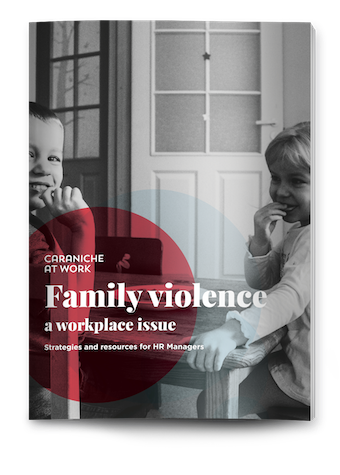
When choosing how to cultivate wellness in the workplace, it’s never been more important to take an organisation-wide approach to ensure your workplace is equipped to provide better support and safety around mental health. Here’s why.
When people think of wellness in the workplace, it’s often in the context of providing services one-on-one to employees on an as-needs basis. But when we consider the needs of a whole organisation, we have the opportunity to rethink and reshape our approach to be much more effective at the individual, team, and organisational levels.
While we know from experience that individual services like counselling are excellent at supporting employees in the workplace, it can be difficult for an individual to challenge or change an environment that’s systemically unbalanced or struggling to flourish.
When we work with organisations holistically, we can set out to improve the systems, processes and environment that underpin the lives of all employees – so that individual workers and teams are able to access interventions that are targeted to where and when they are needed most.
It’s timely that we begin to think about workplaces as a whole; mental injury at work is becoming widely recognised as just as legitimate an injury as a physical impairment experienced in the workplace.
This distinction is also relevant in light of the Mental Health Royal Commission and Productivity Commission, with both suggesting that workplaces need to take up the challenge of better supporting employees with mental health concerns, and to create mentally healthy workplaces.
Taking a whole-of-organisation approach might look like systemically and deliberately checking in with those “hot spot” teams and individuals that are more likely to be under pressure, to get a sense of where the organisation is at in terms of supporting at risk employees during critical times.
This could then inform a feedback loop to management to flag the most useful and timely improvements needed to provide employees with a safe mental health environment. By assessing risk in an organisation, checking the pulse of certain employee groups and gathering de-identified aggregate data, managers can be supported to devise interventions that meet the specific needs that have been brought to light.
These kinds of approaches are more pro-active than reactive, offering the chance to gauge the needs of employees and teams in real-time rather than having employees bear the burden of seeking out mental health support services after undue stress or in response to critical incidents.
With the help of mental health experts, organisations can learn how to respond to feedback in a way that helps rather than hinders teams. After all, there’s no point suggesting an intervention that’s not suitable for a given team’s workplace or role design, no matter how great its merit might be.
Working with organisations through the pandemic, we’ve seen first-hand the pressures impacting different workplaces, many of which are now far-flung and operating from people’s homes, where children often need care and home-schooling.
On the other hand, for employees working on the frontline to respond to COVID-19, the pressures have been even more pronounced, with burnout, moral injury, compassion fatigue and exhaustion commonly being experienced. This can lead to a host of negative outcomes for individuals and organisations, and of course the people these workplaces care for.
As mental health experts, our ability to help our customers and clients navigate complex work environments, whether during a crisis or in post-crisis recovery, is essential when it comes to developing interventions that adopt a whole-of-organisation approach to workplace wellness.
By providing mental health support services to an organisation from the ground up, we’re more likely to create greater workplace wellness for frontline workers right up to senior management.
A whole of organisation approach is good for everyone.
—
Dr Alana Johnston is a consultant psychologist at Caraniche at Work.

Many of the new tech based EAPs have been making inaccurate claims about traditional EAPs as part of their marketing and promotion.
Read more
Moral injury in the workplace can negatively impact our psychological wellbeing and mental health. Here’s why it matters.
Read more
When choosing how to cultivate wellness in the workplace, it’s never been more important to take an organisation-wide approach. Here’s why.
Read more
Australian workplaces are waking up to the impact of family violence. Caraniche at Work has developed a free report for HR Managers who want to take the lead.